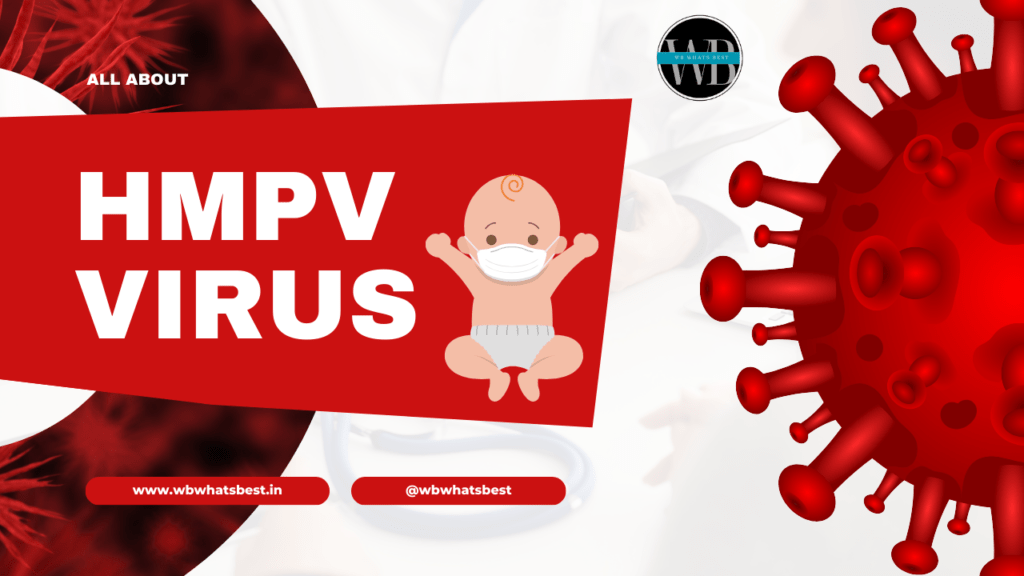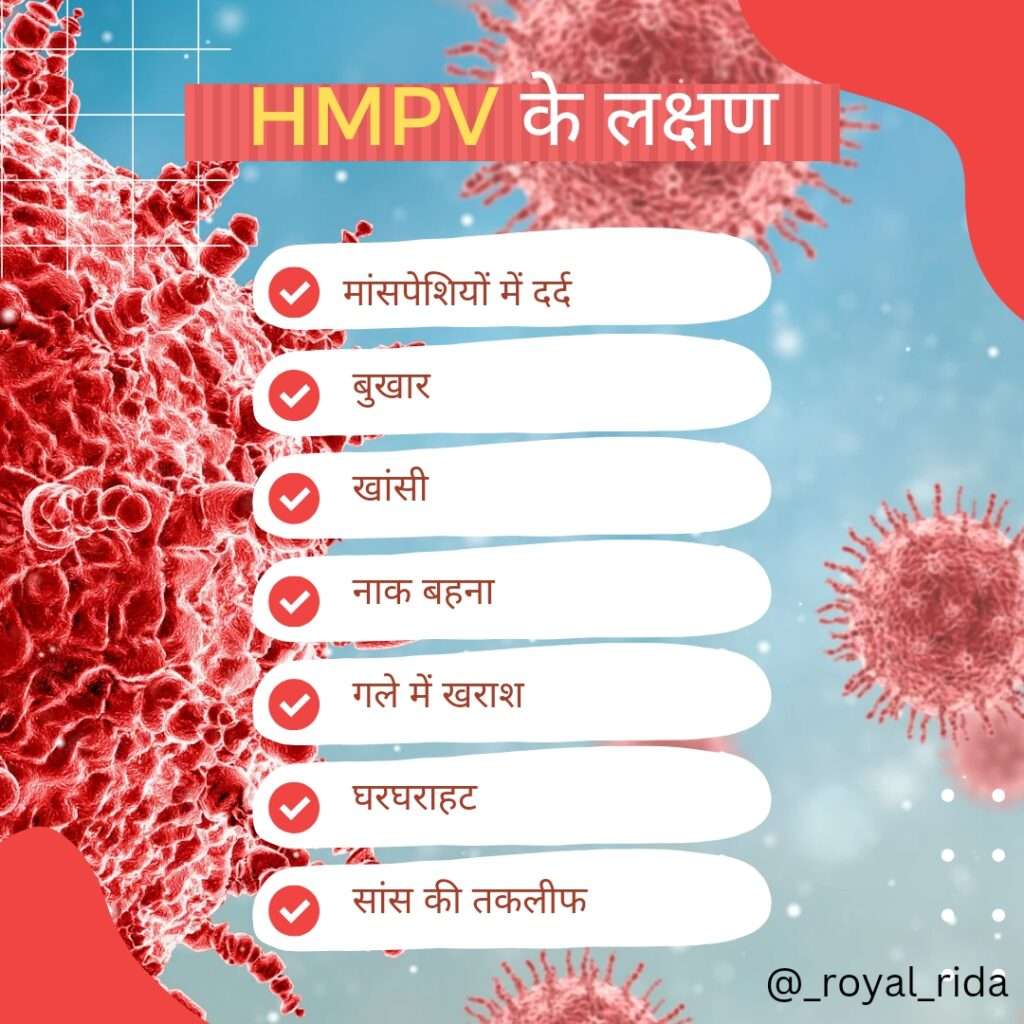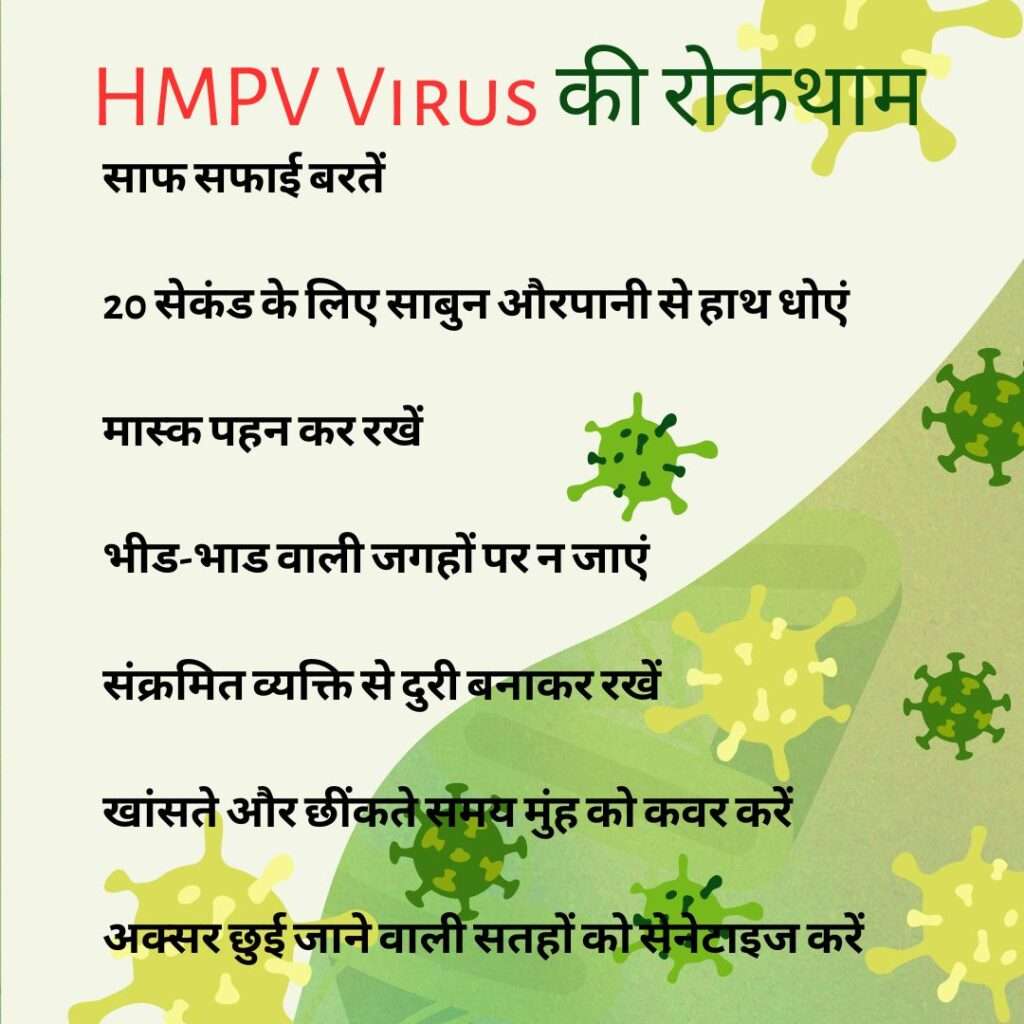The Human Metapneumovirus (HMPV) is an emerging respiratory virus causing concern among parents, especially those with young children. Though it shares similarities with RSV (Respiratory Syncytial Virus), its distinct characteristics and effects make it crucial to understand and manage. Here’s a comprehensive guide to the HMPV virus, its causes, symptoms, preventive measures, and advice from renowned doctors.
What is HMPV Virus?
Contents
- 1 Causes of HMPV Virus
- 2 Symptoms of HMPV Virus
- 3 Who is Vulnerable to HMPV Virus?
- 4 Precautions to Prevent HMPV Virus
- 5 Special Care for Kids with HMPV
- 6 What Renowned Doctors Say About HMPV
- 7 When to See a Doctor?
- 8 Conclusion
- 9 FAQs About HMPV Virus
- 10 Q1. Is HMPV contagious?
- 11 Q2. Can adults get HMPV?
- 12 Q3. Is there a vaccine for HMPV?
HMPV, or Human Metapneumovirus, is a respiratory virus discovered in 2001. It primarily affects the lungs and airways and is known to cause mild to severe respiratory illnesses in people of all ages. The virus is particularly concerning for infants, young children, the elderly, and immunocompromised individuals.

Causes of HMPV Virus
HMPV spreads through:
- Respiratory droplets: When an infected person coughs, sneezes, or talks.
- Direct contact: Touching contaminated surfaces and then touching the face, especially the mouth, nose, or eyes.
- Close contact: Prolonged interaction with an infected person.
HMPV infections are more common during late winter and early spring, similar to the flu and RSV.
Symptoms of HMPV Virus
The symptoms of HMPV can range from mild to severe and often mimic those of other respiratory infections, including:
- Common Symptoms:
- Runny or stuffy nose
- Fever
- Cough
- Sore throat
- Wheezing
- Fatigue
- Severe Symptoms (especially in children):
- Difficulty breathing
- Rapid breathing or shortness of breath
- Cyanosis (bluish tint around lips or fingertips)
- Persistent high fever
In severe cases, HMPV can lead to bronchitis, pneumonia, or exacerbation of asthma in vulnerable individuals.

Who is Vulnerable to HMPV Virus?
Certain groups are at higher risk of severe HMPV infections:
- Young children (under 5 years): Their developing immune systems make them more susceptible.
- Elderly individuals: Age-related immunity decline increases risk.
- Immunocompromised people: Those with weakened immune systems due to conditions like cancer or HIV.
- People with chronic respiratory illnesses: Asthma, COPD, or other lung conditions.
Precautions to Prevent HMPV Virus
To protect yourself and your loved ones, especially children, follow these preventive measures:
- Maintain Good Hygiene:
- Wash hands frequently with soap and water for at least 20 seconds.
- Use alcohol-based hand sanitizers when soap isn’t available.
- Avoid Close Contact:
- Limit contact with people showing symptoms of respiratory illness.
- Clean and Disinfect:
- Regularly clean frequently touched surfaces like doorknobs, toys, and phones.
- Cover Your Mouth and Nose:
- Teach children to cover their mouths when coughing or sneezing. Use tissues or the elbow.
- Use Masks in Crowded Places:
- Particularly in high-risk seasons, ensure children wear masks in crowded settings.
- Boost Immunity:
- Provide a balanced diet, adequate sleep, and regular exercise for overall immune health.

Special Care for Kids with HMPV
If your child contracts HMPV, follow these care tips:
- Hydration is Key:
- Ensure they drink plenty of fluids to prevent dehydration.
- Monitor Symptoms:
- Watch for worsening symptoms like difficulty breathing or persistent fever.
- Provide a Comfortable Environment:
- Use a humidifier to ease breathing. Keep the room warm but well-ventilated.
- Follow Medical Advice:
- Administer medications as prescribed by a pediatrician. Avoid over-the-counter cough suppressants without consulting a doctor.
- Immunity-Boosting Foods and Recipes to Combat HMPV
- Boost your kids immunity with nutrient-rich foods! Citrus fruits like oranges and lemons are packed with Vitamin C to enhance white blood cell production, while turmeric and ginger offer powerful anti-inflammatory and antioxidant benefits. Garlic, with its immune-boosting allicin, pairs well with honey’s soothing antimicrobial properties. Leafy greens like spinach and kale, along with nuts, seeds, and yogurt, provide essential vitamins, healthy fats, and probiotics to support gut health. Antioxidant-rich berries and whole grains like oats and barley further strengthen your immune system, making these foods a must-have for overall wellness.
What Renowned Doctors Say About HMPV
- Dr. Mark Denison, Pediatric Infectious Disease Specialist:
“While HMPV can cause severe illness, most infections are self-limiting. Prompt medical attention is crucial if symptoms worsen, especially in children and elderly individuals.” - Dr. Rachel Saunders, Immunologist:
“Prevention through good hygiene and limiting exposure during peak seasons is essential. Building a child’s immunity through a healthy lifestyle is a long-term protective measure.” - Dr. Linda Nguyen, Pediatrician:
“Parents should not panic but remain vigilant. Seek immediate care if a child shows signs of labored breathing or dehydration.”
When to See a Doctor?
Consult a healthcare provider if:
- Symptoms persist beyond a few days or worsen.
- Your child shows signs of difficulty breathing or lethargy.
- Fever spikes above 102°F (38.9°C) or lasts more than three days.
Conclusion
The HMPV virus, though common, can be effectively managed with early intervention and proper precautions. Staying informed and following recommended preventive measures can safeguard your family, especially young children, from severe complications. Remember, maintaining hygiene, boosting immunity, and seeking timely medical care are the keys to managing the HMPV virus effectively.
Protect your loved ones by staying vigilant this season. Share this guide with friends and family to spread awareness about HMPV and its prevention!
FAQs About HMPV Virus
Q1. Is HMPV contagious?
Yes, HMPV spreads through respiratory droplets, direct contact, and contaminated surfaces.
Q2. Can adults get HMPV?
Yes, adults can contract HMPV, but it’s usually more severe in the elderly or those with weakened immune systems.
Q3. Is there a vaccine for HMPV?
As of now, there is no vaccine for HMPV, but research is ongoing. Prevention is the best approach.
